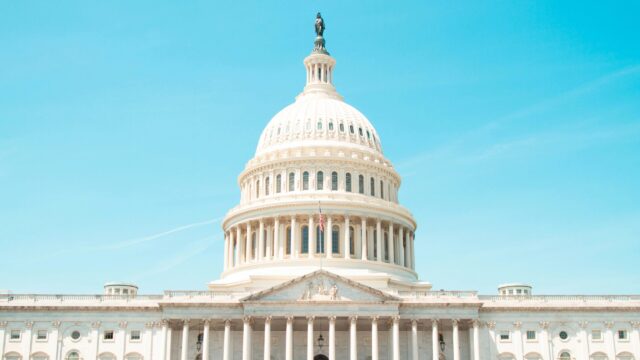Coalition urges $70M funding for CDC’s CORVD to combat non-influenza respiratory viruses
May 2024

BCHC joined a coalition of public health organizations to urge Congress to fund the Coronavirus and Other Respiratory Viruses Division (CORVD) within CDC’s National Center for Immunization and Respiratory Diseases (NCIRD) at $70 million.
This division was established in 2023 and serves at the forefront of prevention and response to non-influenza respiratory virus infections.
Non-influenza respiratory viruses, including respiratory syncytial virus (RSV) and SARS-Coronavirus-2 (SC2), cause substantial illness and death in the United States. These viruses also continue to severely strain the capacity of hospitals and healthcare systems across the nation. Our request for $70 million in funding for CORVD will ensure CDC can support the core expertise, platforms and capacity necessary for public health monitoring and prevention of illness from RSV, COVID-19, and other respiratory viruses such as Adenovirus, MERS, and Parovirus.
As non-influenza respiratory viruses continue to threaten the health of everyone living in this nation, the importance of CORVD’s role cannot be overstated.
During the 2023–2024 respiratory virus season, the U.S. saw flu and RSV circulating simultaneously with COVID-19 at high levels and peaking early. Pediatric beds were in short supply and primary care providers were extremely busy. Each year in the U.S., an estimated 58,000–80,000 children younger than 5 years are hospitalized due to RSV infection and we see over 6,000 deaths from RSV among adults 65 and older. COVID-19 continues to cause a larger number of hospitalizations and close to 7% of adults are living with Long-COVID. As non-influenza respiratory viruses continue to threaten the health of everyone living in this nation, the importance of CORVD’s role cannot be overstated.
CORVD supports state and local health departments, and networks of pediatric and adult hospitals and other health partners to conduct surveillance of non-influenza respiratory diseases both domestically and globally. These systems are critical for the determining which respiratory viruses are circulating or cocirculating and detecting epidemic and pandemic threats like emerging variants of known respiratory viruses and novel human pathogens. CORVD also monitors vaccine effectiveness which is crucial for guiding public health vaccine recommendations. This ensures that public health measures, vaccination campaigns, and recommendations are firmly rooted in dependable data, thus bolstering community and population well-being.
CORVD is also responsible for creating new tests and tools to fight new viruses. Currently, CORVD is developing advanced lab tests that detect and identify respiratory viruses which will help diagnose cases, monitor trends, and guide public health interventions. CORVD is also working to develop new tests that can simultaneously identify different viruses in the same test, which increases throughput and decreases costs.
CORVD’s surveillance systems and epidemiological studies equip governmental agencies, state/local public health departments, and policymakers with the tools necessary to make informed decisions about prevention, treatment, and other mitigations. For the division to continue serving as our nation’s lead public health response to non-influenza respiratory virus infections – they require a robust and sustained budget. This division has been funded primarily through COVID-19 supplemental funding which is set to expire at the end of FY 2024. Failing to increase the base budget for this division would greatly reduce our country’s national preparedness and lead to dire consequences. This includes a lack of understanding of respiratory viruses that may leave the U.S. vulnerable to viral threats and insufficient knowledge dissemination that could result in delayed responses or inadequate public health interventions. The country may also be at risk of delayed responses during outbreaks which would exacerbate health and economic consequences.
We ask for your leadership in ensuring that CDC’s Coronavirus and Other Respiratory Viruses Division receives $70 million in FY25 to support the expertise, capacity and platforms required to protect the health of individuals and the community against non-influenza respiratory virus threats, and informs policymakers, healthcare providers and the public.


